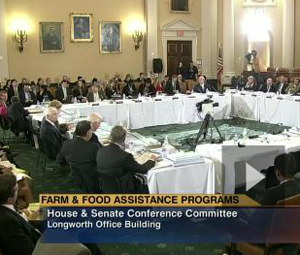BC Hydro has selected Greenlots to manage a provincial network of DC Fast Chargers in Canada. The company will use its SKY network management solution and initial rollout  includes 13 DC Fast Chargers supplied by ABB and Eaton. By utilizing Greenlots’ SKY platform, BC Hydro says it will be leveraging an open standards platform that ensures best-in-class services for site hosts such as access control and pricing, while enabling multiple payment options for EV drivers, all without requiring a subscription to utilize the charge station.
includes 13 DC Fast Chargers supplied by ABB and Eaton. By utilizing Greenlots’ SKY platform, BC Hydro says it will be leveraging an open standards platform that ensures best-in-class services for site hosts such as access control and pricing, while enabling multiple payment options for EV drivers, all without requiring a subscription to utilize the charge station.
“The deployment of Canada’s first Fast Charger network is a key enabler for the adoption of electric vehicles in B.C. [British Columbia]. The installation of more charging locations with faster charging rates will allow greater freedom for EV owners and enable inter-urban travel. The network is also running on an open standards platform that ensures flexibility for future growth and for changes in technology,” said Kip Morison, chief technology officer with BC Hydro. “The deployment of this infrastructure brings British Columbia to the forefront of EV adoption in North America.”
The DC Fast Charger Project, announced in January 2013, was funded by the provincial government under the Clean Energy Vehicle Program to provide electric vehicle owners across British Columbia with an accessible network of charging options. To date, 13 B.C. communities have agreed to serve as site hosts and charging station operators for the DC Fast Chargers.
The Clean Energy Vehicle Program includes the Community Charging Infrastructure Fund, which supported 452 Level 2 charging station installations in public locations throughout B.C., the CEV for BC Point of Sale Incentive Program which has provided 659 vehicle incentives to date; upgrades to hydrogen fuelling infrastructure; the LiveSmart Residential Charging Station Rebate Program which has supported 190 residential charging stations; and 125 Level 2 charging station installations in Multi-Unit Residential Buildings by March 31, 2014.
 Based on Open Charge Point Protocol (OCPP), the open communications platform that has become an industry standard in Europe and is gaining significant traction in North America, SKY allows site hosts the flexibility to mix and match hardware and software vendors to suit their specific needs, while providing full access to programs and the ability to monitor charging station activity. The DC Fast Chargers running on SKY allow drivers to charge their cars, free from subscription-based issues, and offer payment options for credit cards via mobile apps, RFID cards, pay-by-phone or card swipe.
Based on Open Charge Point Protocol (OCPP), the open communications platform that has become an industry standard in Europe and is gaining significant traction in North America, SKY allows site hosts the flexibility to mix and match hardware and software vendors to suit their specific needs, while providing full access to programs and the ability to monitor charging station activity. The DC Fast Chargers running on SKY allow drivers to charge their cars, free from subscription-based issues, and offer payment options for credit cards via mobile apps, RFID cards, pay-by-phone or card swipe.
“British Columbia experiences the highest discrepancy between gasoline and electricity prices in North America, which provides a favorable environment for high EV adoption rates,” added Brett Hauser, President of Greenlots. “Having seen the inherent risks associated with deploying proprietary communication protocols in other countries, BC Hydro has selected SKY to manage the provincial charge station network because of the robust functionality and open standards architecture. BCH can provide best in class services to site hosts and EV drivers today, while ensuring that the provincial charger network will scale well into the future.”









